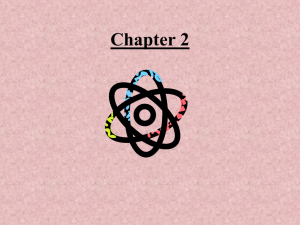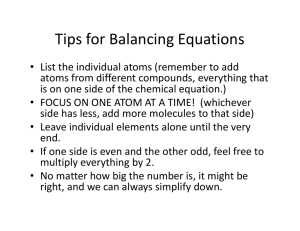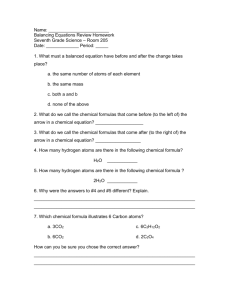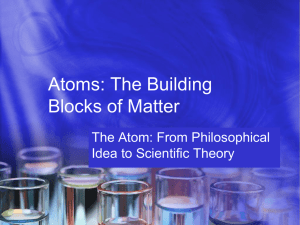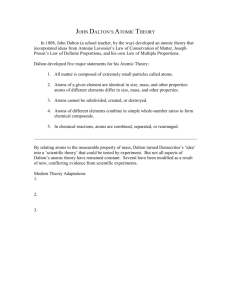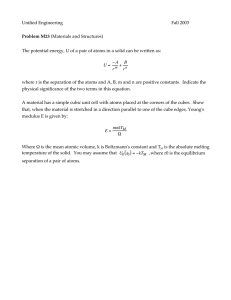Explaining Chemical Facts and Laws
advertisement
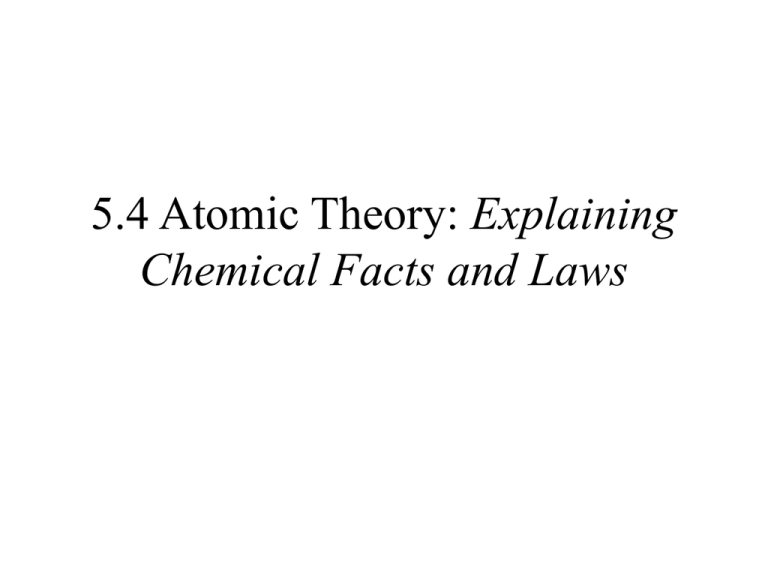
5.4 Atomic Theory: Explaining Chemical Facts and Laws In earlier studies….. Particle theory of matter was used to explain observations of matter. Can it explain what happens in the electrolysis of water? The properties of the compound, water, are different from the properties of the elements that make it up, hydrogen and oxygen. As well as the particles that make up the compound water, hydrogen and oxygen. Since the particle theory of matter does not distinguish one particle from another , a more powerful theory was needed. Dalton’s Atomic Theory • All matter is made up of small particles called atoms. • Atoms cannot be created, destroyed , or divided into smaller particles. • All atoms of the same element are identical in mass and size, but they are different in mass and size from the atoms of other elements. • Compounds are created when atoms of different elements link together in definite proportions. How was it different? Dalton suggested: 1. The smallest particle of matter is an atom. 2. Substances have different properties because the atoms of which they are composed are different. 3. Atoms can combine to form a compound. Dalton’s theory in a modern context Although Dalton’s theory is closely related to modern views of the structure of matter, some aspects of it are no longer accepted. • Certain kinds of “exotic” matter exist that are not made up of atoms (e.g., particles such as positrons and neutrinos, neutron stars). • Atoms are themselves made up of smaller particles. • Atoms of the same element are not always identical. The Difference Between Laws and Theories Scientists use many terms to describe their work and their results. Terms that are often used include: Fact, observation, law, hypothesis, conclusion and theory. In science, laws do not explain anything. They describe and summarize what happens. Theories are imaginative ways to explain why something happens. • Electrolysis of water • Experimental technology to measure the mass of hydrogen and oxygen

